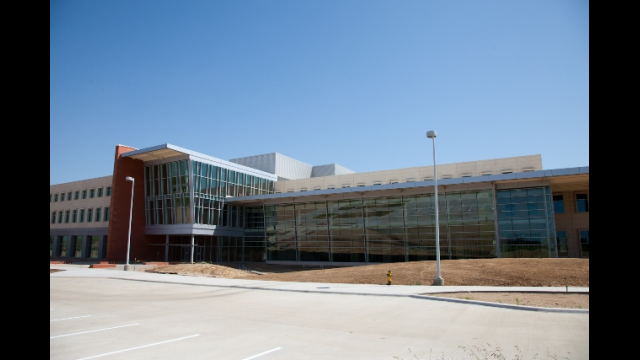By Hayley Gibson
Reporter
The innovations of future companies will be in good hands at the Baylor Research and Innovation Collaborative with the help of the new marketing initiative, the Innovative Business Accelerator.
The IBA is an initiative created by the Hankamer School of Business and the office of the vice provost for research.
It will reside in the Baylor Research and Innovation Collaborative, Baylor’s new graduate research space for science and engineering programs, set to open its over 1 million-square-foot laboratory space to researchers in January.
The Baylor Research and Innovation Collaborative is a product of Baylor’s 10-year strategic plan Baylor 2012, in order to create more academic and research opportunities.
The research center is located at the site of the old General Tire plant across the Brazos River and is nearing completion of its Phase I development, which includes all construction and renovation of the building.
The IBA offices will also open in January.
The IBA will provide the means for companies to effectively market themselves by providing businesses with infrastructure, training and connections in once place.
“The IBA will help companies in the region bring their innovations to the market faster and more efficiently,” said Dr. Gregory Leman, director of the IBA.
The IBA will use the expertise of Baylor business, science, engineering and law faculty as well as employing graduate students to provide services to companies.
The program will hire graduate students as interns in January.
Leman described the process medically as “inpatient” and “outpatient” work, from coaching companies to referring them to a global network.
“We will train, coach and refer companies, but we won’t be just local,” Leman said. “We will have a global network, so for example, if a product fits the Brazilian market, we can help.”
According to Leman, the IBA will provide a “menu of kinds of help,” from instructions on filing patents to business plans and raising money.
This function is necessary to companies because “there are many steps from getting a good invention to getting something like an iPad,” Leman said.
The IBA hopes to speed up the marketing process in a way that produces products and releases them to the public quickly.
Leman said he hopes the IBA will attract new businesses to Waco.
“We have a lot of great research at Baylor, but one of our aims is to have a body of expertise available and I think that creates a valuable reason to come to Waco,” Leman said.
Leman said he hopes the IBA will help grow the local economy and expand Waco’s business sector.
“The BRIC and the IBA are going to be excellent entry points for international companies, such as in China or the Middle East, if they want to get established to develop and grow their markets in the United States,” said Casey Leaman, who is an adjunct in the business entrepreneurship program at Baylor and is collaborating with Leman on the project.
Eventually, the IBA will retain a vigorous student intern program similar to the model at Louisiana State University, mostly working with master’s of business administration students at Baylor, but also undergraduate and law students.
These interns will work with existing companies to create marketing strategies and business plans, which will help interns gain real experience in managing and marketing companies.
Leman said he hopes the IBA will allow students to collaborate with leaders in innovative research, much like the success of a separate program, the Technology and Entrepreneurship Initiative, a result of the collaboration of business and engineering students.
Students will assist companies in marketing strategies and help run the IBA.
“We want that education process to be replicated in our company assistance process,” Leman said.





